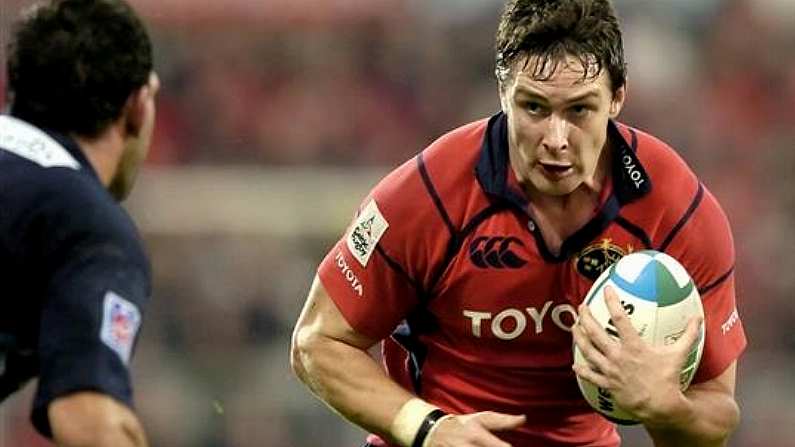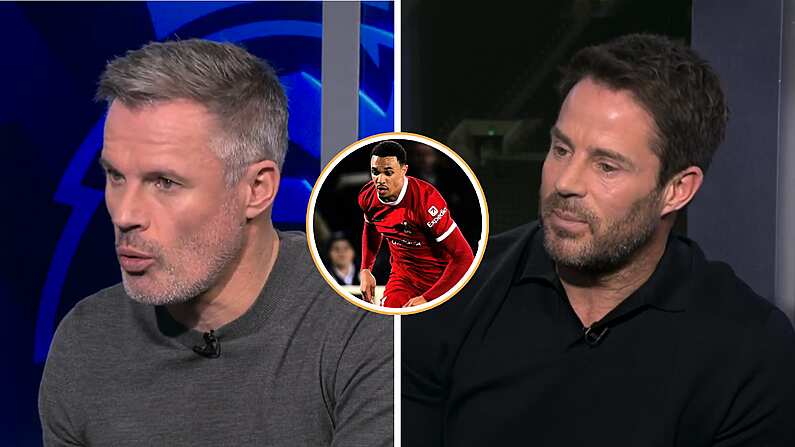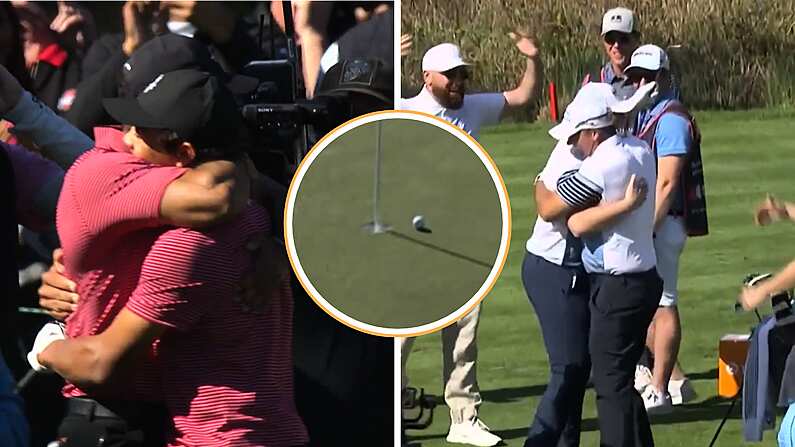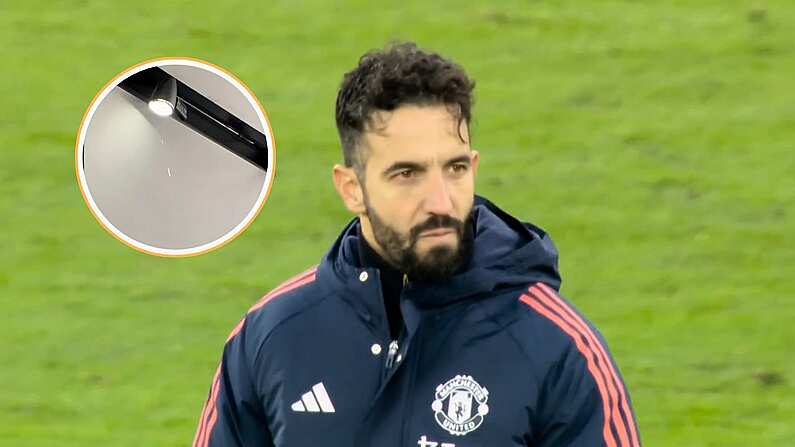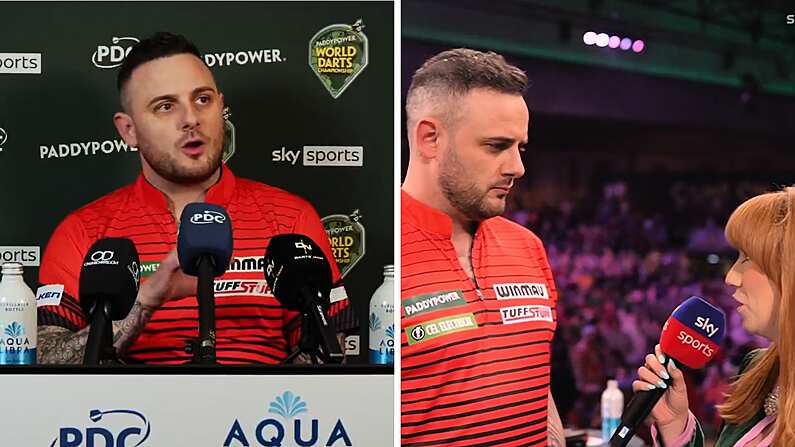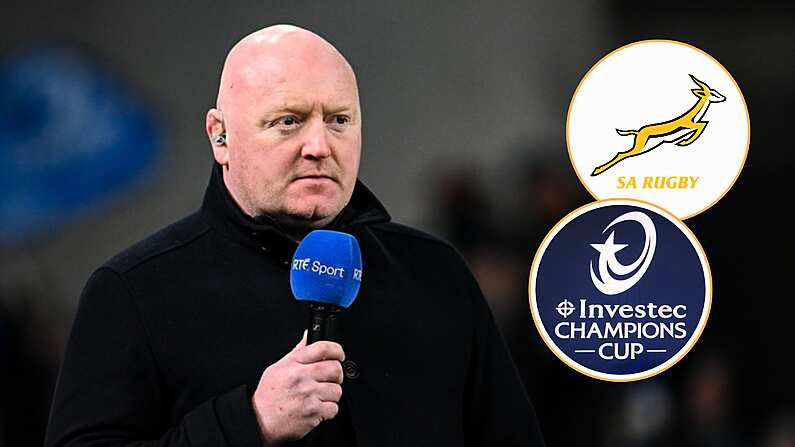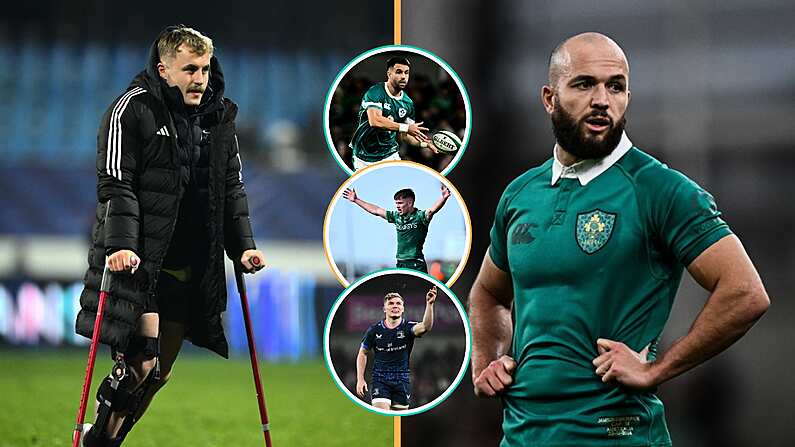David Wallace can vividly remember the low point of his rugby career. It came during a pre-season training session at the University of Limerick.
Wallace had been in the Ireland squad for the tour of South Africa during the summer of 1998 but due to a combination of an injury and being desperately out of shape, he was not capped against the Springboks.
The backrow was at a place in his career where he lacked discipline. Though he had realised in South Africa that a change was required, it had not yet happened. Wallace's weight had skyrocketed - he was up to 18 stone when he arrived at UL.
Speaking on Jarlath Regan's 'An Irishman Abroad' podcast, Wallace related the story of how he got to that low point and how he then rose to become both a Munster and Ireland legend and Lions player.
I came back from that tour. We got four or five weeks off - that didn't help either. The first fitness test I had in UL, I'd been down at Cork Week, a big sailing thing down there. I'd been enjoying myself. I arrived up to Limerick.
First of all, I was a little bit late for the fitness session. Everyone had started off with a sprint through the gates in UL. I arrived in a bit dishevelled and everyone was waiting for me to do my run. They'd already started laughing at me because of the shape I was in, they were wondering, 'What happened to you?' I'd just ballooned. I was close to 18 stone.
I was the last one to go on the sprint. I hadn't seen anyone else go, so I got down in the old sprint position and everyone started laughing. They'd been doing it from a standing start. I was wondering what were they laughing at. I was totally uneasy.
I started the sprint. I was about three strides into it, I started low and I just never came up. I just faceplanted into the court. The whole place erupted and I was just going, 'This is definitely the low point.'
Wallace says he got to that point because he didn't know how to be a professional. After being part of an Irish development side's tour of New Zealand, one Wallace viewed as being a success personally, he was given an Irish contract at the age of just 20. He says it only took a year after that for the 'wheels to come off' his career.
The modern day structures at the provinces were not in place at the time. Wallace says a Welsh coach arrived at the club and departed swiftly - 'We had a Welsh guy come into Thomond Park. He was talking about how excited he was to come into Munster. He was looking forward to a challenge. We had a meeting and he took one look around the room and said, 'No thanks. Not for me.'
As a young man with an income and a lack of professional structure, Wallace began to overindulge.
Not that I was going out drinking every night. I think the fundamentals that got me to where I was, I probably stopped doing them a little bit.
There was amateur era core of older guys and there was still a tradition of going out after a game on a Saturday night but also going out on a Sunday night, maybe a couple of drinks on a Monday night.
It didn't start off on the right foot. I was obviously very influenced by the older guys and I just said, 'This is the norm. This is great craic.'
Circumstances were already going downhill in his career but an ankle injury suffered during an AIL semi-final while playing for Garryowen against Young Munster meant they would tumble.
Wallace sustained a high ankle sprain during a collision with Keith Earls' father Ger. Today, he would immediately undergo surgery but at the time it was said he'd be alright for the final which followed weeks later.
We did the warm-up before the final and there was no way I could even walk. It was hard to even break into a stride but it was said, 'You'll start anyway.' I suppose there was a lot of pressure and it was a final, they wanted me to start even though I couldn't do much.
That was an injury I picked up. We lost the final and I lasted about 25 minutes in the game. There was a couple of weeks celebrating the loss.
After sorrows were drowned, Wallace joined up with the Irish squad for that 1998 tour of South Africa. He was in poor shape and a week of 'bonding' prior to the tour did not help. He remembers halfway through the tour feeling 'wrecked', no longer enjoying the experience. His weight had hit 17-and-a-half stone.
The strength and conditioning coach on that tour attempted to give Wallace some guidance, telling him being out at night and then doing endurance sessions the following day was not a good combination.
At that stage it had gone too far. What I needed to do at that stage was get my ankle right and sort out my discipline. I knew he was right but I just needed the tour to end and get myself into an environment where I could be more disciplined.
The humiliation at UL followed weeks later.
Wallace would turn his career around rapidly, though. After hitting pre-season training hard, he lost a stone in three weeks - 'A lot of it was just fluid retention'.
His career was further aided by the help of Giles Warrington who was involved with the National Coaching and Training Centre at UL. Ireland assistant coach Philip Danaher put Wallace in touch.
He suggested that myself and Tom Tierney go off with Giles and have a sit-down with him - just have a chat and give us some guidance. He'd worked with the likes of Steve Redgrave.
He did two or three very simple things. Two of them were just sitting down in a room with sheet of paper. He said to write out your short-term, medium-term and long-term goals. He left the room and left us at it.
It forced us to think. I'd never done that before. That simple thing of putting down my goals on paper was a very powerful thing. It was very much like writing a contract with myself I was going to stick to. Because it was a personal thing, it meant more.
The other thing was we wrote a list of attributes that we needed to succeed in rugby and grade ourselves in those things. It was something again that helped you to be honest with yourself.
Warrington also gave Wallace a training regime which he returned to often during his career whenever he felt his form or fitness required topping up.
Though he wasn't even playing regularly for Munster at the time, Wallace set his goals to become the province's first-choice number seven, win a cap for Ireland and also play for the Lions.
He would achieve all of those ambitions within 18 months.

